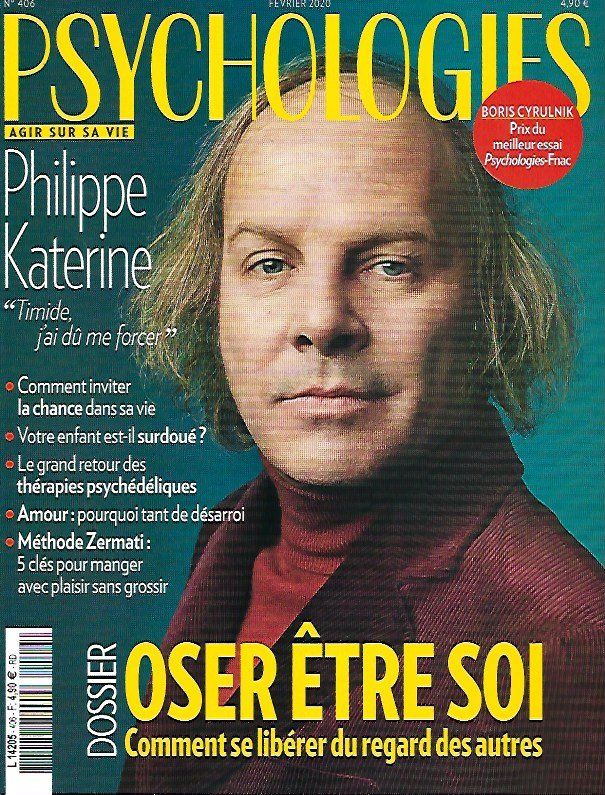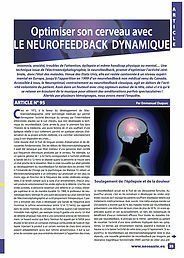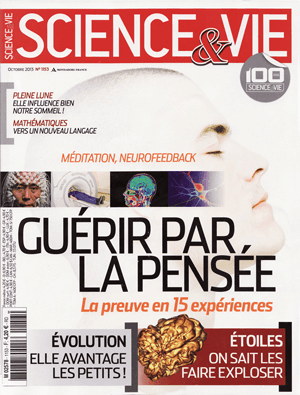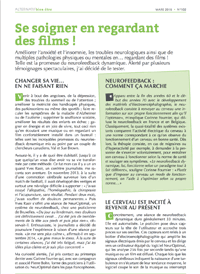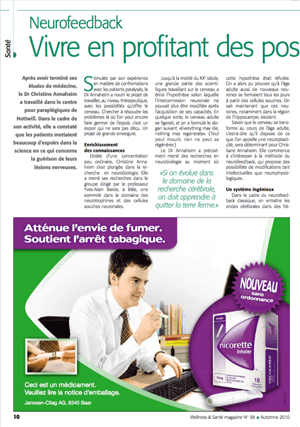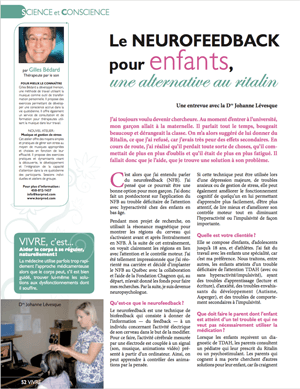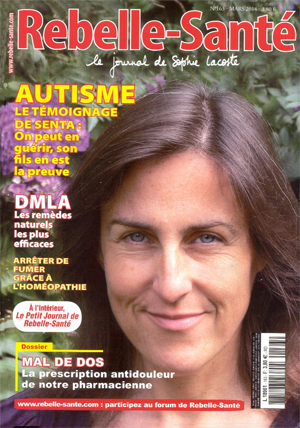Useful Links
Videos
Press Articles
Books
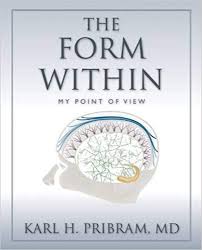
The Form Within - My point of view- 2013-English
Karl H Pribram
The fascinating story of two hundred years of pioneering brain research, told from the unique perspective of the only brain scientist who has been and remains an active participant in this story for the past seventy years: Karl H. Pribram .
Pribram takes us on a fascinating journey from the dawn of our collective "recorded perceptions" in cave paintings to our greatest achievements as a species. He explains the important task of mapping the brain, the discovery of our holographic processing of memory and perception, and the detailed research that created our understanding of self-organizing biological systems.
Along the way, Pribram shares intimate interactions he had with leading figures in 20th-century science, including David Bohm, Francis Crick, John Eccles, Dennis Gabor, Hubel and Wiesel, Wolfgang Kohler, Karl Lashley, Aleksandr Romanovitch Luria, Ilya Prigogine, BF Skinner, Eugene Sokolov, and many others.
But this fascinating glimpse into our past is only part of the story. Pribram also provides us with insightful insights into a science of the future and points the way forward in understanding how the brain works.
Neuroergonomics- 2003 - English
Raja Parasuraman
Neuroergonomics can be defined as the study of the brain and behavior at work. It combines two disciplines: neuroscience, which studies brain function, and human factors, which studies how to adapt technology to the abilities and limitations of people so that they can work effectively and safely. The goal of merging these two fields is to use surprising discoveries about the human brain and physiological functioning both to inform the design of technologies in the workplace and at home, and to provide new training methods that improve performance, expand capabilities, and optimize the fit between people and technology. Research in the field of neuroergonomics has flourished in recent years with the emergence of noninvasive techniques for monitoring human brain function that can be used to study various aspects of human behavior in relation to technology and work, including mental workload, visual attention, working memory, motor control, human-automation interaction, and adaptive automation. This volume provides the first systematic overview of this emerging field, describing the theoretical background, basic research, key methods, and new and future areas of application. This collection will benefit a number of readers: the experienced researcher studying related issues in human factors and cognitive neuroscience, the student seeking a quick but systematic overview of the field, and the designer interested in new approaches and application ideas.
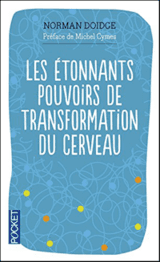
The Brain's Amazing Transformative Powers: Healing Through Neuroplasticity
- 2008
Norman Doidge
For centuries, medicine and science have claimed that the brain is like a machine: if one part is damaged, a function disappears. However, we are now discovering that this statement is completely wrong: the brain has the capacity to adapt, to compensate for deficiencies due to injuries, trauma or birth disabilities. Through detailed case analyses (each chapter is devoted to the story of a patient), accompanied by interviews with specialists, Norman Doidge brilliantly illustrates this astonishing capacity of the brain to repair itself.
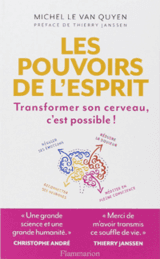
The powers of the mind
- 2015
Michel Le Van Quyen
Did you know that you are able to reduce your perception of pain through hypnosis? That thanks to the neurofeedback technique, you can increase your empathy towards others, by stimulating a small area behind your temples, the insula? For a long time, "body-mind" approaches such as meditation, autosuggestion at work in the placebo effect, hypnosis, etc. were perceived as esoteric or related to spirituality alone. However, thanks to progress in neuroscience, we now know that this is not the case: these practices have a real effect on our brain. Better still: each of us can, by the simple power of thought, literally transform this organ, both in its structure and in its most intimate functioning.
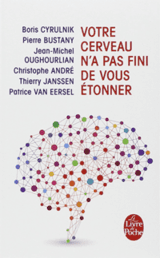
Your brain never ceases to amaze you
- 2014
Collective Authors
We knew that the brain was the most complex entity in the known universe. But recent discoveries show that its capabilities are much more astonishing than we thought: not only is the brain elastic (aged or disabled, it can rebuild itself, learn, invent) but also social (it only exists in resonance with others). The combination of these faculties suggests that man can act on the evolution of his brain. Patrice Van Eersel, editor-in-chief of Clés magazine, presents this fascinating research in the form of interviews with five renowned physician-researchers (ethnologist, psychiatrists, neurologist): neuronal plasticity, new brain imaging techniques, practical application of the advances of neurocognitivists on meditating monks, contribution of oriental medicine…
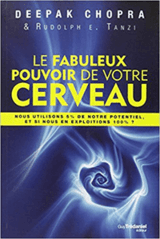
The fabulous power of your brain
- 2013
Deepak Chopra & Rudolph E. Phd Tanzi
Scientists tell us that we only use about 5% of our brain. So what is the amazing potential that lies behind the 95% that we don't use? Best-selling author Deepak Chopra and Rudolph Tanzi, one of the world's leading experts on the causes of Alzheimer's disease, explore the brain's latent potential. They introduce us to the brains of humanity's greatest geniuses (including Einstein and Buddha), as well as those of ordinary people with extraordinary abilities. The Amazing Power of Your Brain offers you a cutting-edge scientific exploration that will reveal the keys to accessing your untapped brain potential.
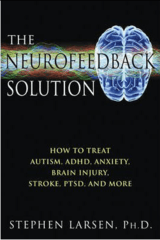
The Neurofeedback Solution
- 2012In English language
Stephen Larsen
In this guide to neurofeedback, psychologist and neurofeedback practitioner Stephen Larsen examines the myriad benefits of neurofeedback for diagnosing and treating many of the most debilitating and pervasive psychological and neurological conditions, including autism, ADHD, anxiety, depression, stroke, obsessive-compulsive disorder, and post-traumatic stress disorder.Investigating the work of neurofeedback pioneers, Larsen explains the techniques and benefits of different neurofeedback methods. He reveals evidence of neuroplasticity—the brain's ability to grow new neurons—and shows how neurofeedback can nourish the aging brain and help treat degenerative diseases such as Alzheimer's and stroke.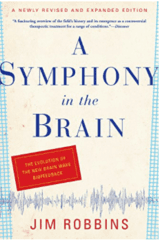
A Symphony in the Brain
- 2014 In English language
Jim Robbins
Discovered by a small body of scientific researchers, biofeedback has faced battles for acceptance in the conservative medical world despite positive signs that it could revolutionize the way an incredibly diverse range of medical and psychological problems are treated. Offering a wealth of powerful case studies, accessible scientific explanations, and astonishing accounts, Robbins' remarkable story expands our understanding of this important field.
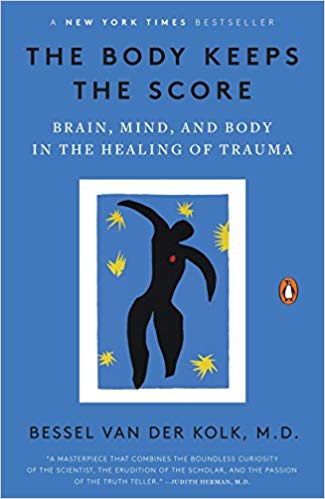
The Body Keeps the Score -
2015
Bessel van der Kolk
Essential reading for anyone interested in understanding and treating traumatic stress and the scope of its impact on society." --Alexander McFarlane, Director of the Centre for Traumatic Stress Studies A pioneering researcher transforms our understanding of trauma and offers a bold new paradigm for healing in this New York Times bestseller Trauma is a fact of life. Veterans and their families deal with the painful aftermath of combat; one in five Americans has been molested; one in four grew up with alcoholics; one in three couples have engaged in physical violence. Dr. Bessel van der Kolk, one of the world's foremost experts on trauma, has spent over three decades working with survivors. In The Body Keeps the Score, he uses recent scientific advances to show how trauma literally reshapes both body and brain, compromising sufferers' capacities for pleasure, engagement, self-control, and trust. He explores innovative treatments--from neurofeedback and meditation to sports, drama, and yoga--that offer new paths to recovery by activating the brain's natural neuroplasticity.
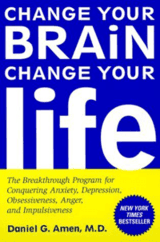
Change Your Brain, Change Your Life
- 2016
Dr G Amen
This book brings you scientific evidence that your anxiety, depression, anger, obsession, or impulsivity could be related to how specific structures work in your brain. You're not stuck with the brain you're with. born. Renowned neuropsychiatrist Dr. Daniel Amen includes cutting-edge new research from over 100,000 SPECT brain scans over the past 25 years and the latest amazing and effective “brain prescriptions” that can heal your brain and change your life.
This book offers simple techniques that will help you: ease anxiety and panic; combat depression; boost memory; overcome impulsiveness and learn to focus; and stop worrying obsessively.
Other Useful Links
Démêler les fils du TDAH
- La Press - Dossier d'Isabelle Audet et Jean Siag-
A History of NeurOptimal®: A personal reflection - Susan Cheshire Brown Ph.D.
- Susan Cheshire Brown, Ph.D.





